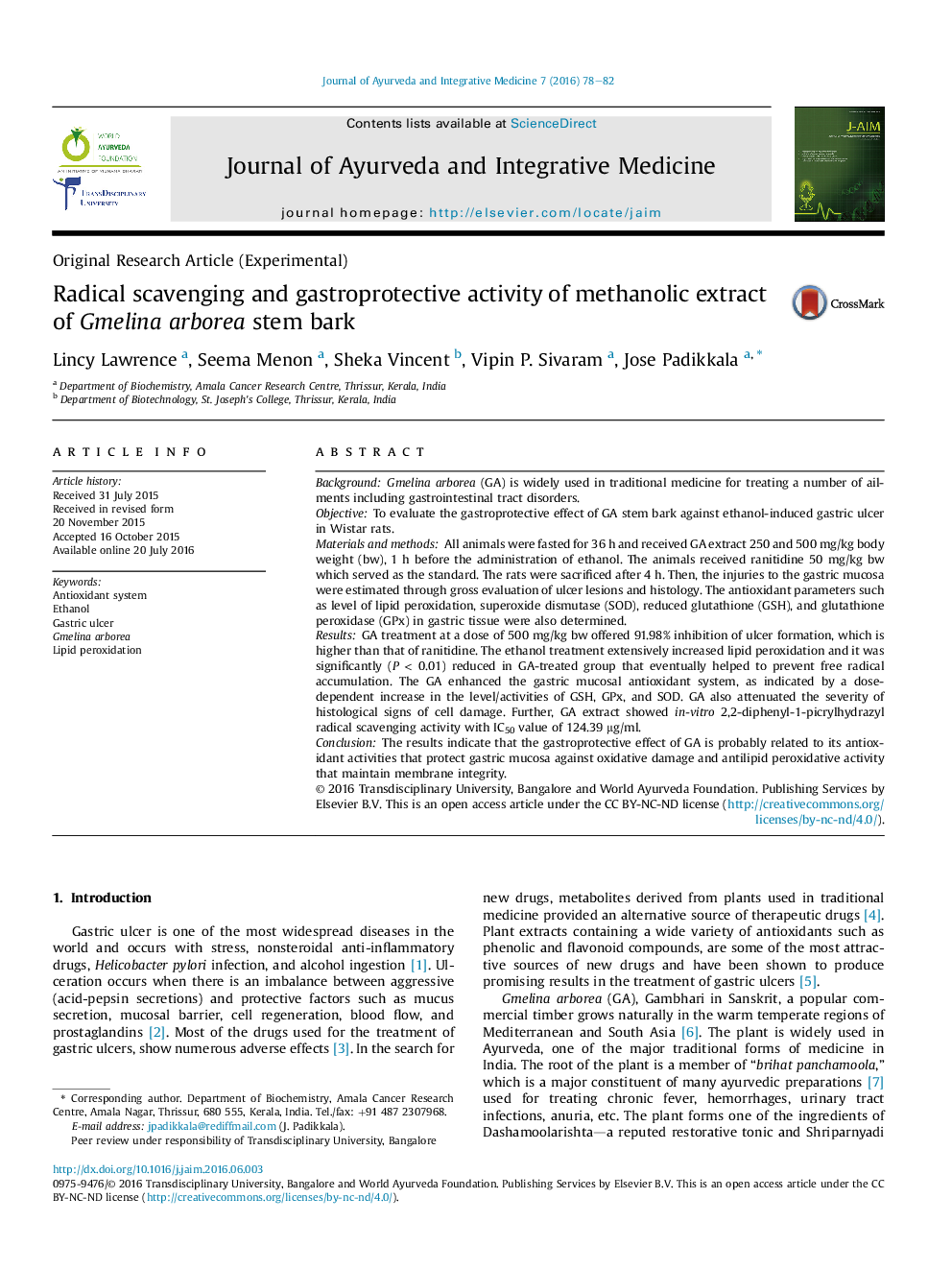| Article ID | Journal | Published Year | Pages | File Type |
|---|---|---|---|---|
| 3099217 | Journal of Ayurveda and Integrative Medicine | 2016 | 5 Pages |
BackgroundGmelina arborea (GA) is widely used in traditional medicine for treating a number of ailments including gastrointestinal tract disorders.ObjectiveTo evaluate the gastroprotective effect of GA stem bark against ethanol-induced gastric ulcer in Wistar rats.Materials and methodsAll animals were fasted for 36 h and received GA extract 250 and 500 mg/kg body weight (bw), 1 h before the administration of ethanol. The animals received ranitidine 50 mg/kg bw which served as the standard. The rats were sacrificed after 4 h. Then, the injuries to the gastric mucosa were estimated through gross evaluation of ulcer lesions and histology. The antioxidant parameters such as level of lipid peroxidation, superoxide dismutase (SOD), reduced glutathione (GSH), and glutathione peroxidase (GPx) in gastric tissue were also determined.ResultsGA treatment at a dose of 500 mg/kg bw offered 91.98% inhibition of ulcer formation, which is higher than that of ranitidine. The ethanol treatment extensively increased lipid peroxidation and it was significantly (P < 0.01) reduced in GA-treated group that eventually helped to prevent free radical accumulation. The GA enhanced the gastric mucosal antioxidant system, as indicated by a dose-dependent increase in the level/activities of GSH, GPx, and SOD. GA also attenuated the severity of histological signs of cell damage. Further, GA extract showed in-vitro 2,2-diphenyl-1-picrylhydrazyl radical scavenging activity with IC50 value of 124.39 μg/ml.ConclusionThe results indicate that the gastroprotective effect of GA is probably related to its antioxidant activities that protect gastric mucosa against oxidative damage and antilipid peroxidative activity that maintain membrane integrity.
